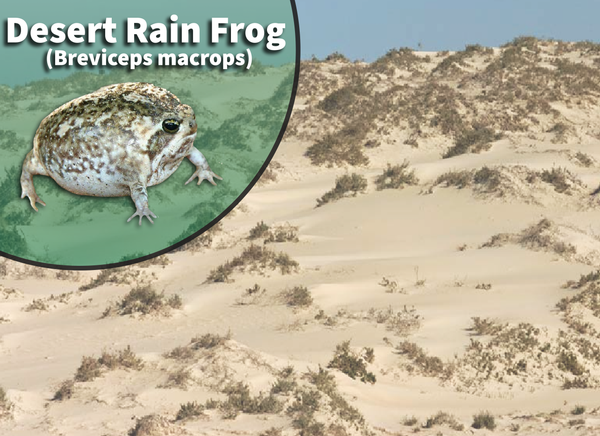Common Health Issues in Reptiles: Symptoms and Solutions
In the detailed world of reptile treatment, comprehending the typical health issues that may affect these special creatures is critical in guaranteeing their wellness. From respiratory system infections that can silently take hold to metabolic bone diseases that can incapacitate, reptiles are susceptible to a series of disorders that require keen monitoring and timely treatment. Whether it's grappling with parasitical invasions, browsing dehydration worries, or dealing with skin conditions that show up in refined methods, being in harmony with the symptoms and outfitted with the expertise of efficient solutions is important for any kind of reptile owner. By delving further right into the subtleties of these wellness problems and discovering the practical solutions available, one can secure the health and wellness and vitality of these fascinating animals.
Respiratory System Infections
Respiratory system infections in reptiles can significantly impact their overall wellness and call for timely focus from seasoned vets. In reptiles, breathing infections can be especially testing to identify and deal with due to their special makeup and physiology.
Therapy for respiratory system infections in reptiles usually includes a combination of supportive treatment, such as keeping correct humidity degrees and temperature gradients in the enclosure, along with targeted medicine to deal with the specific virus in charge of the infection. It is vital for reptile proprietors to monitor their pet dogs carefully for any indicators of breathing distress and look for veterinary care at the earliest indicator of a concern. With prompt intervention and suitable therapy, numerous reptiles can recuperate completely from respiratory infections and return to typical tasks.

Metabolic Bone Condition
What variables contribute to the growth of Metabolic Bone Condition in reptiles?
Metabolic Bone Disease (MBD) in reptiles is mainly created by a lack of appropriate calcium, phosphorus, and vitamin D3 degrees in their diet plan. When reptiles do not obtain adequate calcium, either through their food or correct UVB direct exposure for vitamin D3 synthesis, they go to a high risk of creating MBD. Reptiles with diets reduced in calcium or imbalanced calcium to phosphorus ratios are particularly prone. In addition, inadequate exposure to UVB light stops reptiles from manufacturing vitamin D3, which is essential for calcium absorption and bone health and wellness.
Various other adding variables to MBD consist of incorrect temperature level slopes within the reptile's environment, causing reduced metabolic rate and damaged calcium absorption. Inadequate humidity levels can also influence a reptile's capacity to metabolize calcium effectively. In addition, specific reptile types have certain nutritional demands that, otherwise met, can boost the chance of establishing MBD. Regular vet exams, correct husbandry methods, and a balanced diet are necessary to stop Metabolic Bone Condition in reptiles.
Parasitical Invasions
Parasitic infestations present a significant wellness danger to reptiles, affecting their total health and calling for timely vet attention. Reptiles can be influenced by different parasites, including mites, ticks, interior worms, and protozoa. These parasites can create a variety of symptoms, such as weight reduction, lethargy, skin inflammation, diarrhea, and even fatality if left without treatment.
One typical parasite located in reptiles is the mite, which can trigger skin stress and anxiety, irritation, and anemia. Ticks are another external parasite that can cause and transfer illness discomfort to the reptile. Inner parasites like worms and protozoa can lead to digestive problems, lack of nutrition, and compromise the reptile's immune system.
To diagnose a parasitical problem, a vet may carry out fecal examinations, skin scrapings, or blood tests. Treatment typically entails deworming medications, antiparasitic bathrooms, or in severe instances, a hospital stay. Preventative actions such as routine veterinary examinations, proper hygiene, and quarantine treatments for brand-new reptiles can assist minimize the danger of parasitic problems and make sure the health of reptile pet dogs.
Dehydration and Hydration Issues
Dehydration in reptiles can dramatically Get More Info affect their wellness and wellness, necessitating timely intervention and appropriate hydration monitoring. Reptiles are prone to dehydration as a result of different variables such as inadequate water intake, high environmental temperatures, and specific health and wellness problems. Signs and symptoms of dehydration in reptiles consist of sunken eyes, sleepiness, loss of skin elasticity, and reduced urination. If left without treatment, dehydration can result in serious wellness issues and even be deadly to the reptile.
To avoid dehydration, reptile owners must make certain that their family pets have access to clean water in all times. The water meal should be large sufficient for the reptile to take in if required, especially for types that soak up water through their skin. In addition, keeping correct humidity degrees in the reptile's unit and offering normal baths can aid prevent dehydration.
In cases of dehydration, it is essential to look for veterinary care without delay. A veterinarian might administer liquids either by mouth or through shots to rehydrate the reptile. It is crucial to resolve the underlying image source reason for dehydration navigate to this website to avoid recurrence and make certain the reptile's general wellness.
Skin Ailments

Final Thought

Respiratory infections in reptiles can significantly affect their total health and require timely attention from knowledgeable veterinarians (rain frog for sale). Preventative measures such as regular veterinary examinations, appropriate hygiene, and quarantine procedures for new reptiles can assist reduce the danger of parasitical infestations and make certain the health of reptile family pets
If left untreated, dehydration can lead to serious health and wellness problems and also be fatal to the reptile.
Routinely evaluating your reptile for any adjustments in skin texture, color, or look can aid in very early detection and therapy of skin ailments, advertising the total wellness and health of your scaly buddy. - rain frog for sale
In conclusion, reptiles are vulnerable to various wellness concerns such as breathing infections, metabolic bone condition, parasitical infestations, dehydration, and skin disorders.